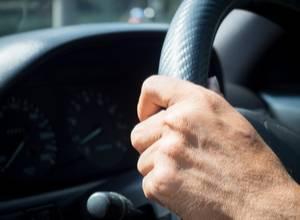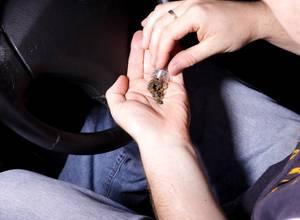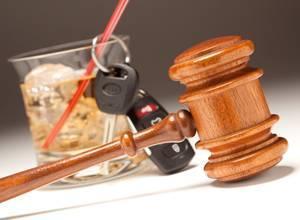Recent Blog Posts
Safe Driving Tips After Your First DWI
 When you have regained your driving privileges after a charge of driving while intoxicated, you must reassess your driving habits that led to the initial arrest. Most DWI arrests occur because drivers commit traffic violations or are involved in accidents. Once a police officer suspects you may be impaired, you are at risk of being charged with DWI. Avoiding drinking and driving is the most important step you can take to prevent a DWI arrest. However, there are other driving tips that will keep you safe and help you avoid police attention.
When you have regained your driving privileges after a charge of driving while intoxicated, you must reassess your driving habits that led to the initial arrest. Most DWI arrests occur because drivers commit traffic violations or are involved in accidents. Once a police officer suspects you may be impaired, you are at risk of being charged with DWI. Avoiding drinking and driving is the most important step you can take to prevent a DWI arrest. However, there are other driving tips that will keep you safe and help you avoid police attention.
Being Aware of Impairment
There are conditions other than intoxication that can impair your driving skills. You may be sick, emotionally upset or experiencing an adverse side effect from a medication. However, the most common driving impairment is drowsiness. Whether due to lack of sleep or overworking yourself, being tired slows down the mental responsiveness you need to be a safe driver. Police can also confuse the symptoms of drowsiness with the symptoms of intoxication. To avoid impaired driving, you should:
BAC Results May Not Prove Innocence in DWI Arrest
 Texas drivers should be familiar with the number 0.08. That is the blood alcohol concentration level at which someone is considered legally intoxicated. A breath or blood test result of 0.08 or higher will lead to an arrest and charge of driving while intoxicated. However, having a BAC that is less than the legal limit does not preclude a driver from a DWI charge. Texas police officers have the discretion to decide that a driver was legally impaired by an intoxicating substance, even if medical records do not prove it.
Texas drivers should be familiar with the number 0.08. That is the blood alcohol concentration level at which someone is considered legally intoxicated. A breath or blood test result of 0.08 or higher will lead to an arrest and charge of driving while intoxicated. However, having a BAC that is less than the legal limit does not preclude a driver from a DWI charge. Texas police officers have the discretion to decide that a driver was legally impaired by an intoxicating substance, even if medical records do not prove it.
Legal Definition
The Texas Penal Code states that police officers can identify intoxication in one of two circumstances:
- The driver does not have normal use of his or her mental or physical faculties due to the presence of alcohol or another intoxicating substance; or
- The driver’s BAC is 0.08 or greater.
By law, a driver is assumed to be intoxicated if his or her BAC is over the legal limit. However, the driver may still be ruled as legally intoxicated if there is evidence of some alcohol in his or her system and he or she showed signs of impairment. A police officer may determine that a driver is impaired if he or she:
Country Star Travis Unable to Stop DWI Video from Becoming Public
 A federal court recently denied country music singer Randy Travis’ request to prevent the release of a dashboard camera video from his 2012 arrest for driving while intoxicated. The video shows a disoriented and naked Travis ranting to police officers, which Travis claims may have been the result of mixing alcohol with prescription medication. Travis plead guilty to DWI, but he asked the Texas Attorney General’s office to withhold the video because of its embarrassing nature. The Texas Attorney General’s office ruled that it would allow an edited version of the video to be released. Travis filed a lawsuit to prevent the video’s release, but Texas district and appellate courts both ruled against him. The Texas Supreme Court refused to hear the case, which led to the federal lawsuit. The issue shows how the public’s right to information can be at odds with a defendant’s privacy.
A federal court recently denied country music singer Randy Travis’ request to prevent the release of a dashboard camera video from his 2012 arrest for driving while intoxicated. The video shows a disoriented and naked Travis ranting to police officers, which Travis claims may have been the result of mixing alcohol with prescription medication. Travis plead guilty to DWI, but he asked the Texas Attorney General’s office to withhold the video because of its embarrassing nature. The Texas Attorney General’s office ruled that it would allow an edited version of the video to be released. Travis filed a lawsuit to prevent the video’s release, but Texas district and appellate courts both ruled against him. The Texas Supreme Court refused to hear the case, which led to the federal lawsuit. The issue shows how the public’s right to information can be at odds with a defendant’s privacy.
Case Background
Why Female DWI Arrests Have Increased
 When it comes to arrests for driving while intoxicated, men far outpace women. According to a Texas Department of Public Safety report, 48,332 men were arrested in 2016 for DWI, as opposed to 13,384 women. Annual arrest totals for each gender have decreased by an almost identical percentage since 2012. Looking further back at DWI statistics showed a different trend between genders. Since 1999:
When it comes to arrests for driving while intoxicated, men far outpace women. According to a Texas Department of Public Safety report, 48,332 men were arrested in 2016 for DWI, as opposed to 13,384 women. Annual arrest totals for each gender have decreased by an almost identical percentage since 2012. Looking further back at DWI statistics showed a different trend between genders. Since 1999:
- The number of male DWI arrests in Texas has decreased by 40 percent; and
- The number of female DWI arrests in Texas has increased by 12 percent.
To be fair, the lowest male arrest total for one year since 1999 is still more than twice as much as the highest female arrest total. Because of the lower number of female arrests, small fluctuations will appear as higher percentage changes. However, the data correlates with an even longer trend of female DWI arrests increasing from previous generations. There are several societal changes that may explain the increase:
Can You Be Charged with DWI While Riding a Horse?
 A woman in Florida was recently charged with driving under the influence of alcohol for riding her horse near a busy highway while allegedly intoxicated. Such stories gain public attention because they are unusual. They also bring into question what qualifies as a DUI, or Texas’ preferred term of driving while intoxicated. For instance, Texas police arrested two men in 2011 for riding a horse and mule down a street while legally intoxicated. They were initially charged with DWI, but the charge was later reduced to public intoxication. Texas law is ambiguous regarding how to charge people who are using non-motorized transportation while intoxicated.
A woman in Florida was recently charged with driving under the influence of alcohol for riding her horse near a busy highway while allegedly intoxicated. Such stories gain public attention because they are unusual. They also bring into question what qualifies as a DUI, or Texas’ preferred term of driving while intoxicated. For instance, Texas police arrested two men in 2011 for riding a horse and mule down a street while legally intoxicated. They were initially charged with DWI, but the charge was later reduced to public intoxication. Texas law is ambiguous regarding how to charge people who are using non-motorized transportation while intoxicated.
Riding While Intoxicated
Texas law clearly defines DWI incidents as involving motorized vehicles, which may include cars, trucks, motorcycles, motor boats and aircrafts. However, there are other means of transportation that do not involve motors, such as:
Consequences of an Underage DUI in Texas
 The public considers the terms “driving while intoxicated” and “driving under the influence” to be synonymous. DWI and DUI are both charges of drunken driving, and each state has a preferred term. However, Texas uses both terms to classify different types of drinking and driving criminal charges. Anyone who has a blood alcohol concentration of 0.08 or greater while operating a motor vehicle will receive the more familiar charge of DWI. DUI applies to cases involving people who are younger than 21.
The public considers the terms “driving while intoxicated” and “driving under the influence” to be synonymous. DWI and DUI are both charges of drunken driving, and each state has a preferred term. However, Texas uses both terms to classify different types of drinking and driving criminal charges. Anyone who has a blood alcohol concentration of 0.08 or greater while operating a motor vehicle will receive the more familiar charge of DWI. DUI applies to cases involving people who are younger than 21.
Underage Drinking and Driving
Texas has a zero-tolerance policy towards drivers who are younger than 21 and have been drinking. Any traceable of amount of alcohol in their systems can result in DUI charges, regardless of whether they were impaired. An underage drinker can still be charged with DWI if his or her BAC is 0.08 or greater. Whether the charge is a DUI or DWI, the underage drinker may also face related charges, such as:
Marijuana Testing Misleading After DWI Stops
 The charge of driving while intoxicated in Texas includes drivers who are impaired by the use of marijuana. A person convicted of driving while high will face:
The charge of driving while intoxicated in Texas includes drivers who are impaired by the use of marijuana. A person convicted of driving while high will face:
- Three to 180 days in prison and a fine of as much as $2,000 for the first offense;
- 30 days to one year in prison and a fine of as much as $4,000 for the second offense; and
- Two to 10 years in prison and a fine of as much as $10,000 for the third offense.
Texas law enforcement is identifying an increasing number of drivers who test positive for marijuana. However, the protocols for determining a DWI on marijuana are less refined than for a DWI on alcohol. This can lead to erroneous charges, which a skilled lawyer can contest.
Unreliable Testing
Officers have several forms of testing they can administer to determine a driver's blood alcohol concentration, including a breath test. If the suspect’s BAC is 0.08 or higher, he or she is considered legally intoxicated and in violation of the law. The judicial system widely accepts the accuracy of such tests. For marijuana use, THC levels in a person’s system is considered the equivalent to the BAC. However, there are several problems with marijuana testing:
Social Media Is Evidence in DWI Cases
 The proliferation of social media outlets such as Facebook and Twitter has created a culture of oversharing personal information. Incredulously, this includes people posting incriminating information about themselves that either leads to their arrest or is used as evidence in a trial. In cases of driving while intoxicated, some suspects share details about traffic incidents and their drinking habits before they have been arrested. A court may view these posts as admissions of guilt. If you are involved in a suspected DWI incident, you must be silent on social media in order to protect yourself.
The proliferation of social media outlets such as Facebook and Twitter has created a culture of oversharing personal information. Incredulously, this includes people posting incriminating information about themselves that either leads to their arrest or is used as evidence in a trial. In cases of driving while intoxicated, some suspects share details about traffic incidents and their drinking habits before they have been arrested. A court may view these posts as admissions of guilt. If you are involved in a suspected DWI incident, you must be silent on social media in order to protect yourself.
Public Forum
If you are pulled over by a police officer, you should know not to brag about how much you’ve had to drink or how your intoxication may have affected your driving ability. People are essentially doing just that when they post information about their DWI incident to social media. Many users forget how social media actually works:
Child Passenger Makes DWI Offense a Felony
 There are several aggravating factors in driving while intoxicated cases that can lead to harsher penalties if convicted. Child endangerment is one of the most serious factors because it involves your responsibility to protect the children in your vehicle. A DWI charge that is normally a misdemeanor becomes a felony when children are involved. Beyond criminal ramifications, your fitness as a parent will come into question. DWI with a child passenger is a serious offense that can disrupt your family if not successfully contested.
There are several aggravating factors in driving while intoxicated cases that can lead to harsher penalties if convicted. Child endangerment is one of the most serious factors because it involves your responsibility to protect the children in your vehicle. A DWI charge that is normally a misdemeanor becomes a felony when children are involved. Beyond criminal ramifications, your fitness as a parent will come into question. DWI with a child passenger is a serious offense that can disrupt your family if not successfully contested.
Arrest Standards
A passenger qualifies as a child in a DWI case if he or she is younger than 15. A child only needs to be present in the vehicle during your suspected DWI incident in order for a DWI with child passenger charge to be filed. If the child was injured during the incident, that may result in a separate charge of intoxication assault with serious bodily injury. When a child is involved in a DWI incident, Texas law states that the officer must take a blood or breath test to determine your blood alcohol content. DWI lawyers advise that you refuse the test because of the incriminating evidence it can provide. However, refusing the test may result in additional charges. An officer can legally compel you to submit to a test only if he or she first produces a warrant. A warrantless test is unconstitutional in most cases, and the result from the test may be dismissed in court.
Texas Court Upholds Citizen's Arrest in DWI Case
 A Texas appellate court denied a woman’s request to overturn her driving while intoxicated conviction, which she claims was influenced by inadmissible evidence. In her appeal, the woman argued that:
A Texas appellate court denied a woman’s request to overturn her driving while intoxicated conviction, which she claims was influenced by inadmissible evidence. In her appeal, the woman argued that:
- A private security guard involved in her case was not authorized to make a citizen’s arrest; and
- Without informing her of her Miranda rights, a police officer at the scene questioned her and obtained an incriminating statement, which he mentioned during his testimony.
The appellate court decided that the citizen’s arrest was legal and the self-incriminating statement was not the deciding evidence in the case.
Case Details
According to testimony, a private security guard for a residential community was on an early morning patrol when he noticed an unfamiliar vehicle stopped in front of a driveway. When he returned to the scene three minutes later, he observed the vehicle moving and driving over a curb before coming to a stop. He approached the vehicle, where he found the driver unresponsive, the car still in drive and her foot on the brake pedal. He put the vehicle in park and removed the keys from the ignition, placing them on the roof. The security guard claims that the woman awoke and was incoherent and disheveled. He called a local police officer to the scene to further investigate the incident. During questioning, the woman admitted that she had drank a bottle of whiskey and a beer a couple of hours earlier. She failed a horizontal gaze test and was taken to central detox, where she also showed signs of intoxication during a walk-and-turn test. The officer then arrested her on suspicion of DWI, including reading her Miranda rights. A test showed her blood alcohol content to be 0.126. She was eventually convicted of a misdemeanor DWI and was sentenced to six days in jail.





